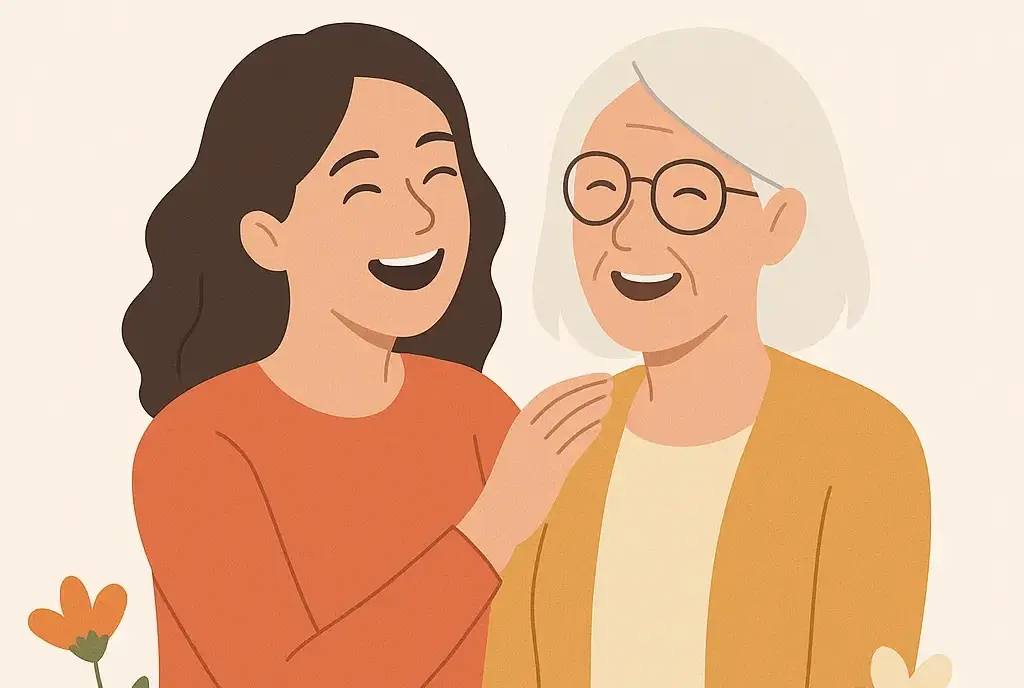Why Sharing Your Life Story is Important with Friends and Family
-
 LifeMemoirs
LifeMemoirs - 09 Nov, 2024

Our lives are a collection of stories—moments of joy, lessons learned, hardships overcome, and dreams chased. Yet, as time moves on, these memories often fade, leaving behind only fragments of our experiences. Sharing your life story with friends and family not only preserves these memories but also strengthens bonds, creates understanding, and leaves a legacy for generations to come.
In this article, we’ll explore why sharing your life story is more than just reminiscing; it’s a gift to yourself and your loved ones.
“A life story shared is a legacy passed down.”
1. Creating Deeper Connections
When you share your life story with friends and family, you’re inviting them to see you as you are—your dreams, struggles, and accomplishments. This vulnerability fosters a deeper connection and encourages loved ones to open up about their own stories.
Example
- Have you ever shared a childhood memory with a sibling and realized they had a different perspective on the same event? These conversations can help bridge gaps and deepen your relationships.
2. Preserving Memories for Future Generations
Memories fade, but words endure. By documenting and sharing your life experiences, you’re creating a record for future generations to learn from and cherish. Imagine your great-grandchildren reading about your life—the challenges you faced and how you overcame them.
- Quote: “We are the sum of our memories.” Sharing your life story ensures these memories live on, even when you’re no longer there to tell them.
3. Passing Down Life Lessons and Values
Your life journey is filled with valuable lessons—both the triumphs and the missteps. Sharing these stories allows you to pass down wisdom and values to those you care about. Younger generations may benefit from your insights on resilience, love, and perseverance.
Key Life Lessons
- How you handled a difficult situation
- Lessons learned from career challenges
- Advice on relationships and family
Sharing these lessons can guide your loved ones in their own journeys, helping them navigate life’s twists and turns.
4. Providing Comfort and Inspiration
Your life story may offer comfort and inspiration to others. Seeing someone they love face challenges and come out stronger can be incredibly motivating for friends and family. Whether it’s overcoming illness, finding love, or pursuing a passion, your story can remind others that resilience and hope are possible.
“Your story might be the reason someone else never gives up.”
5. Encouraging Self-Reflection
The process of reflecting on your life to share it can be therapeutic. Writing down your experiences and emotions allows you to see your growth and progress over the years. You may discover patterns, learn from past decisions, and gain a new perspective on events.
Self-Reflection Prompts
- What are the key moments that shaped who you are today?
- Are there any regrets or dreams you still want to pursue?
- How have your values evolved over time?
By sharing these reflections, you may inspire others to consider their own journeys and grow from their experiences.
6. Building a Family Legacy
In sharing your life story, you’re contributing to a family legacy. Your stories become part of the family’s collective identity, creating a sense of belonging and continuity. This legacy builds pride and provides context for younger generations, helping them understand where they come from and what values their family holds dear.
- Quote: “We inherit not only our ancestors’ genes but also their dreams and sacrifices.”
7. Bridging the Generation Gap
Sharing stories can bridge the gap between generations, creating understanding and empathy. When younger family members hear about the hardships and victories of older generations, they’re more likely to appreciate the journey that brought them to where they are.
Example
- Share how you faced a challenge without today’s modern conveniences. These stories provide perspective, reminding younger generations of the resilience and adaptability their ancestors possessed.
8. Encouraging Vulnerability and Healing
For some, life stories contain both joy and pain. Sharing experiences, even difficult ones, can foster healing and acceptance. Opening up about struggles like loss, illness, or difficult times can encourage others to process and share their own pain, fostering a supportive environment within families.
“In sharing our wounds, we find healing.”
Final Thoughts
Sharing your life story is a powerful act. It’s a way to say, “This is who I am, and this is what I’ve learned.” By preserving these stories, you’re building a bridge across time, connecting the past to the present, and creating a future where your loved ones understand, appreciate, and carry forward the lessons of your life.
So take a moment to reflect, write down, or record the memories that make you who you are. Your story is worth telling—and it’s a gift only you can give.
“Our stories may fade, but the impact we leave remains.”
Start sharing your life story today, and watch as it strengthens your relationships, preserves your legacy, and inspires the people you care about most.
Need an easy way to capture and organize these precious stories? Check out LifeMemoirs.ai to get started.


